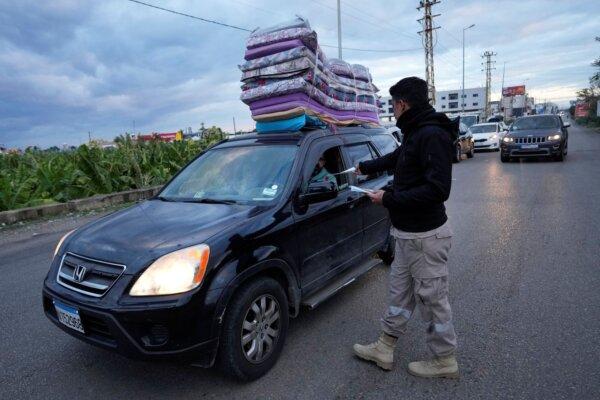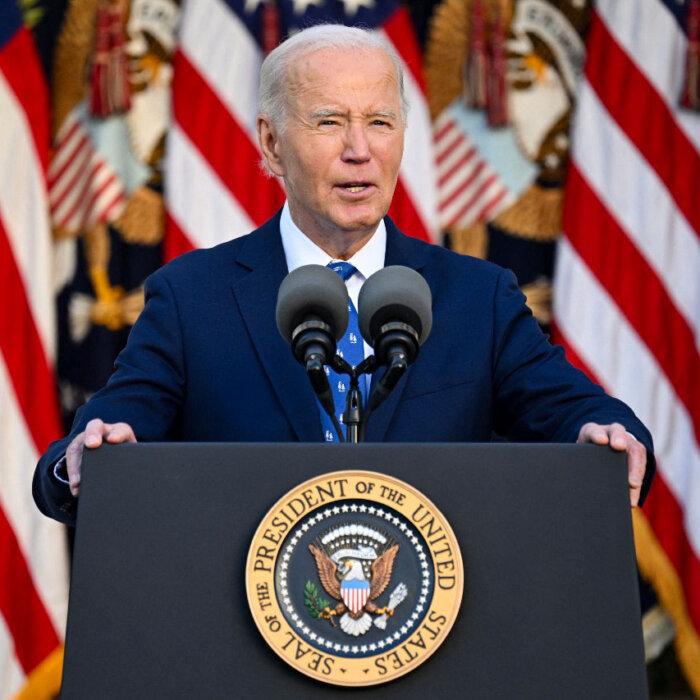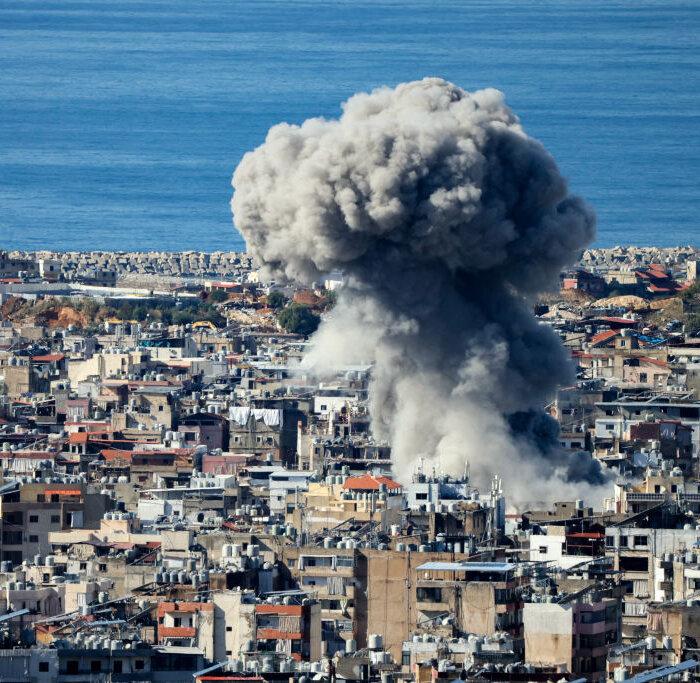Thousands of residents of towns and villages in southern Lebanon have started returning to their homes as the cease-fire between Israel and the Iranian-backed terrorist group Hezbollah took effect.
The cease-fire came into effect at 4 a.m. local time on Nov. 27 (9 p.m. ET on Nov. 26) and within hours hundreds of cars were driving back into southern Lebanon, defying a warning from the Israeli military to stay away from evacuated areas.
Israel has said it will attack if Hezbollah breaks the cease-fire agreement.
On Wednesday morning the Lebanese prime minister, Najib Mikati, held a press conference where he urged Israel to abide by the terms of the cease-fire.
Under the terms of the deal Israel will evacuate all Lebanese territory within 60 days, and the Lebanese army will move in and secure the area.
Lebanon has committed its army to continue the work of destroying Hezbollah’s fortifications near the Israeli border, including tunnels meant to enable a cross-border attack.
The conflict between Israel and Hezbollah began shortly after the Lebanese group’s allies, Hamas, launched their attack on Israel on Oct. 7, 2023, killing 1,200 people and taking 250 hostage.
After almost a year of Hezbollah rocket attacks, the Israel Defense Force (IDF) launched a ground invasion on Oct. 1 in an attempt to move the terrorists away from the border and destroy tunnels and other fortifications.
Hezbollah fired rockets into northern Israel on Tuesday, but there have been no reports of casualties.
Iran Welcomes Cease-Fire
Iran has welcomed the cease-fire between Israel and Hezbollah.But Iranian foreign ministry spokesman Esmail Baghaei said Iran still wanted to see a cease-fire in the Gaza Strip, where the Hamas-controlled health ministry says 44,000 have been killed since Oct. 7, 2023.
Baghaei also called for the “criminals of the occupying regime,” to be tried by the International Criminal Court (ICC).
A warrant was also issued for Hamas leader Mohammed Deif, who Israel believes is dead.
On Wednesday, Hamas spokesman Sami Abi Zuhri said, “Hamas appreciates the right of Lebanon and Hezbollah to reach an agreement that protects the people of Lebanon and we hope that this agreement will pave the way to reaching an agreement that ends the war of genocide against our people in Gaza.”
The cease-fire has not been welcomed by all Israelis.
The Lebanese government said around 1.2 million people had been displaced by the conflict between Israel and Hezbollah.
Itamar Ben-Gvir, the leader of the Otzma Yehudit (Jewish Strength) party, wrote on X on Tuesday night, “The cabinet’s decision tonight is a serious mistake.”
IDF Warns Against Returning
Israeli military spokesman Avichay Adraee, wrote in Arabic on X, “Urgent warning to the residents of south Lebanon ... You are prohibited from heading towards the villages that the IDF has ordered to be evacuated or towards IDF forces in the area.”“For your safety and the safety of your family members, refrain from moving to the area,” he added.
But the warning was largely ignored, as celebratory gunfire was heard at the main roundabout in the southern city of Tyre.

One of those who was returning to his home, Ahmad Husseini, said returning to southern Lebanon was an “indescribable feeling” and he praised the Speaker of Lebanon’s Parliament, Nabih Berri, who led the Lebanese negotiating team.
“He made us and everyone proud,” said Husseini.
Berri, who is 86, is a veteran Shi'ite politician whose Amal movement was eclipsed by Hezbollah in the 1990s.
But Tyre resident Hussein Sweidan said the cease-fire was a victory for Hezbollah.
“This is a moment of victory, pride and honor for us, the Shia sect, and for all of Lebanon,” he said.







